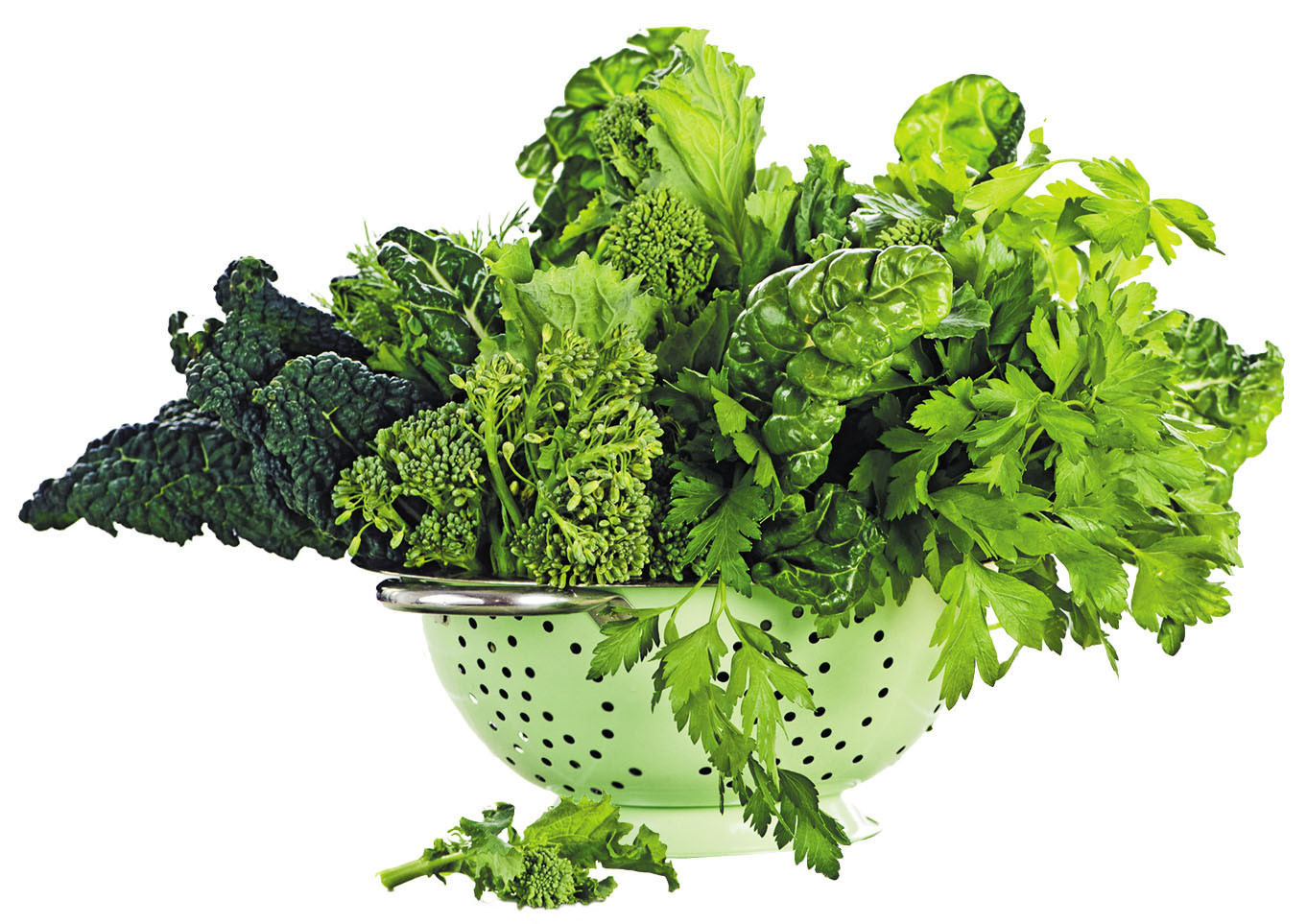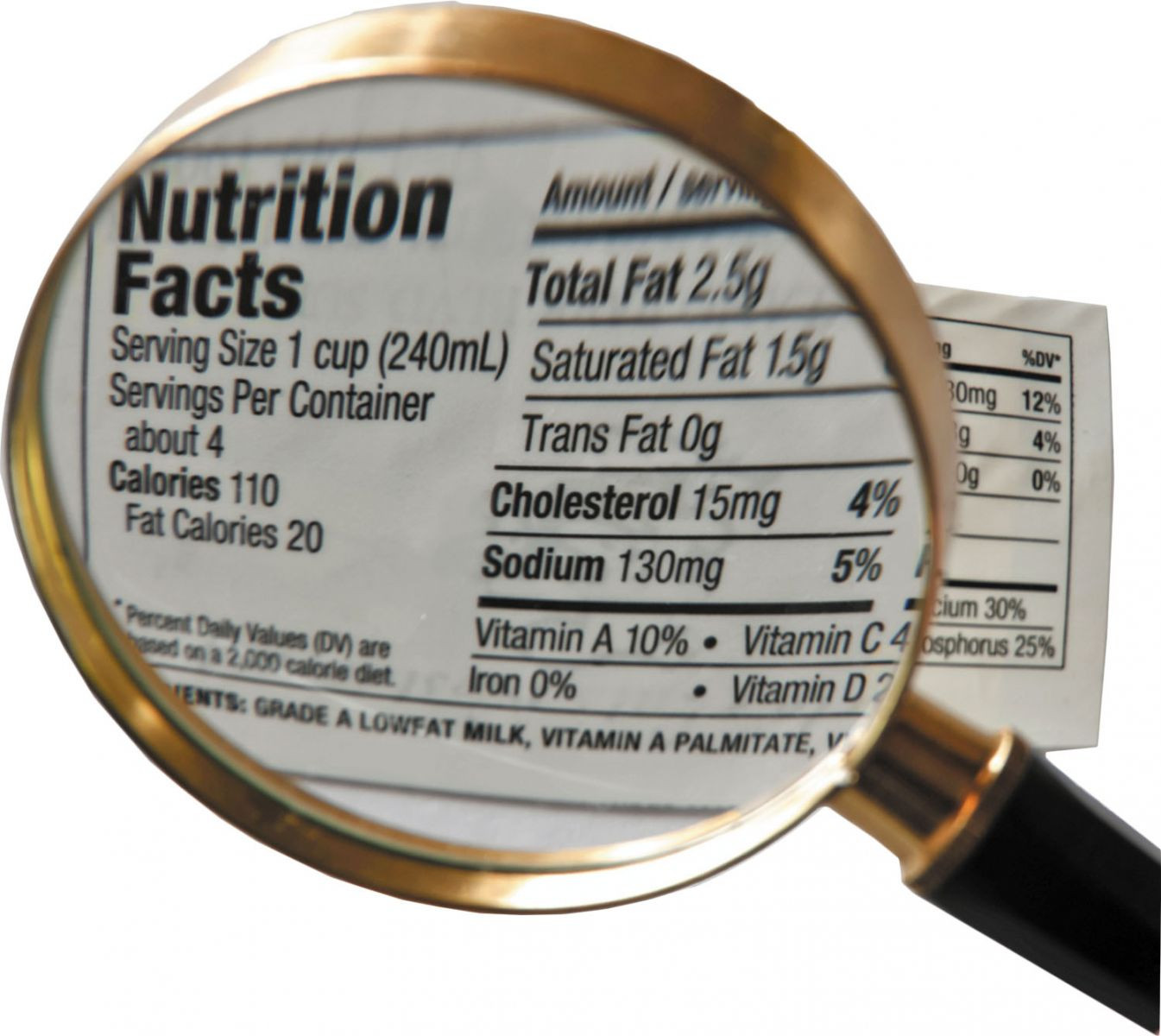
New thinking about plaque in arteries that feed the brain

Want to prevent shifting teeth? Maybe you need retainers

What you need to know about the new dietary guidelines

Food that’s healthier for people and planet can be cheaper, too

New evidence that polyphenol-rich foods help the heart

8 simple ways to reduce ultra-processed foods in your diet

How to curb your stress eating

How to spot Parkinson’s disease symptoms

Heart failure symptoms in women: How they’re different

GERD diet: Foods to avoid to reduce acid reflux
Nutrition Archive
Articles
Vegetable of the month: Leafy greens
Image: © Elenathewise/Getty Images
A salad is a great way to meet your daily vegetable requirement — just toss a few of your favorite veggies together with lettuce or other greens. Most grocery stores sell a variety of salad greens (separate or mixed), prewashed and bagged for convenience. Arugula and watercress are peppery, dandelion and escarole are bitter, mâche and iceberg are sweet, and a green called tatsoi has a mustard flavor. Baby spinach is another popular option.
The USDA recommends two to three cups of vegetables per day for adults. But because greens aren't very dense, it actually takes about two cups of raw greens to make the nutritional equivalent of a one-cup serving of vegetables.
Your health through the decades
These strategies keep you healthy and safe through your 60s, 70, and 80s.
Image: © kali9/Getty Images
After age 60, men tend to get thrown together — the so-called 60-and-older group — even though most are quite different in terms of their health.
"While many men are still very fit well into their 60s, 70s, and 80s, others face health challenges and chronic diseases that make daily living difficult," says Dr. Howard LeWine, assistant professor of medicine at Harvard Medical School.
Warning labels using images may steer consumers away from sugary drinks
Research we're watching
Image: © weiXx/Getty Images
Pictures may be more effective than words in helping consumers make healthier choices. A new study, published online June 18 by Psychological Science, found that using warning labels that included photos to outline the health risks of sugary drinks appeared to be more effective than written warnings in encouraging people to choose healthier drinks.
Researchers tested two different types of warnings for sugary beverages: warnings with photos and text, and text-only warnings. The warnings were placed near bottled and fountain drinks in a cafeteria at a Massachusetts hospital at different times. During the study period, there were more than 20,000 drinks sold.
Ask the doctor: Coconut oil and health
ARCHIVED CONTENT: As a service to our readers, Harvard Health Publishing provides access to our library of archived content. Please note the date each article was posted or last reviewed. No content on this site, regardless of date, should ever be used as a substitute for direct medical advice from your doctor or other qualified clinician.
Q. I have started noticing more coconut oil at the grocery store and have heard it is better for you than a lot of other oils. Is that true?
Harvard researchers say healthy habits may add years to your life
News briefs
Image: © filadendron/Getty Images
What's the secret to living longer? A Harvard study published online April 30, 2018, by Circulation suggests that it may come down to five healthy habits: eating a healthy diet, exercising daily, keeping a healthy body weight, drinking alcohol only in moderation, and not smoking. Researchers combed through information from two large studies that tracked more than 123,000 men and women for about three decades. Scientists estimated that life expectancy for study participants (at age 50) was 79 for women and 75 for men, if they didn't maintain healthy habits. But if they adopted all five habits, life expectancy at age 50 jumped to 93 for women and 87 for men. And following even one healthy habit was associated with a lower risk for dying young. The study is only observational and doesn't prove that healthy habits extend your life. But the findings build on similar research. "It's never too late to make positive lifestyle changes. Even for those who are 70 or older, following a healthy lifestyle such as eating a healthy diet and being physically active can add more years to life," says Dr. Frank Hu, senior author of the study and chair of the Department of Nutrition at the Harvard T.H. Chan School of Public Health.
Simple swaps to eat less salt
Learn the most common sources of sodium in your diet and some easy substitutions you can make.
Image: © yosmanor/Getty Images
If you think steering clear of potato chips, pretzels, and other savory snacks is the best way to trim salt from your diet, think again. Yes, those foods are salty — but they only rank no. 7 on the top 10 sources of sodium (a major component of salt) in the average American's diet.
The category of bread and rolls tops the list, which is based both on sodium content and how often people eat the foods. Bread is not especially salty, but we eat a lot of it, as well as similar foods such as hamburger and hot dog buns, bagels, and English muffins.
Vegetable of the month: Tomatoes
Image: © Singkham/Getty Images
Vine-ripened, locally grown tomatoes are abundant in farmers' markets in August. Scientifically speaking, these vivid red (and sometimes yellow, brown, purple, or green) orbs are fruits. But the USDA, which issues the Dietary Guidelines for Americans, includes tomatoes in the red-orange vegetable group. Aim for about five to six cups per week of the foods in this group, which also includes carrots, squash, and sweet potatoes.
When good fresh tomatoes aren't available, canned tomatoes are a good substitute, especially in soups, stews, and pasta sauces. Eating tomatoes and tomato products may help lower cholesterol and improve blood vessel function, according to a 2017 article in Atherosclerosis.

New thinking about plaque in arteries that feed the brain

Want to prevent shifting teeth? Maybe you need retainers

What you need to know about the new dietary guidelines

Food that’s healthier for people and planet can be cheaper, too

New evidence that polyphenol-rich foods help the heart

8 simple ways to reduce ultra-processed foods in your diet

How to curb your stress eating

How to spot Parkinson’s disease symptoms

Heart failure symptoms in women: How they’re different

GERD diet: Foods to avoid to reduce acid reflux
Free Healthbeat Signup
Get the latest in health news delivered to your inbox!
Sign Up











